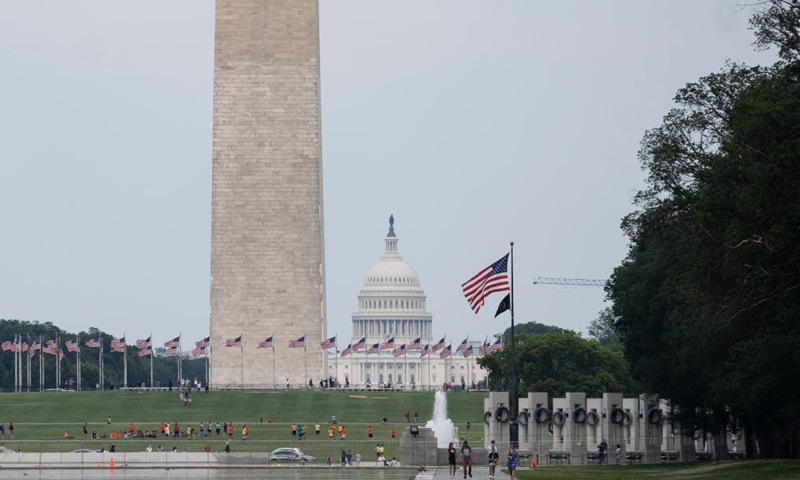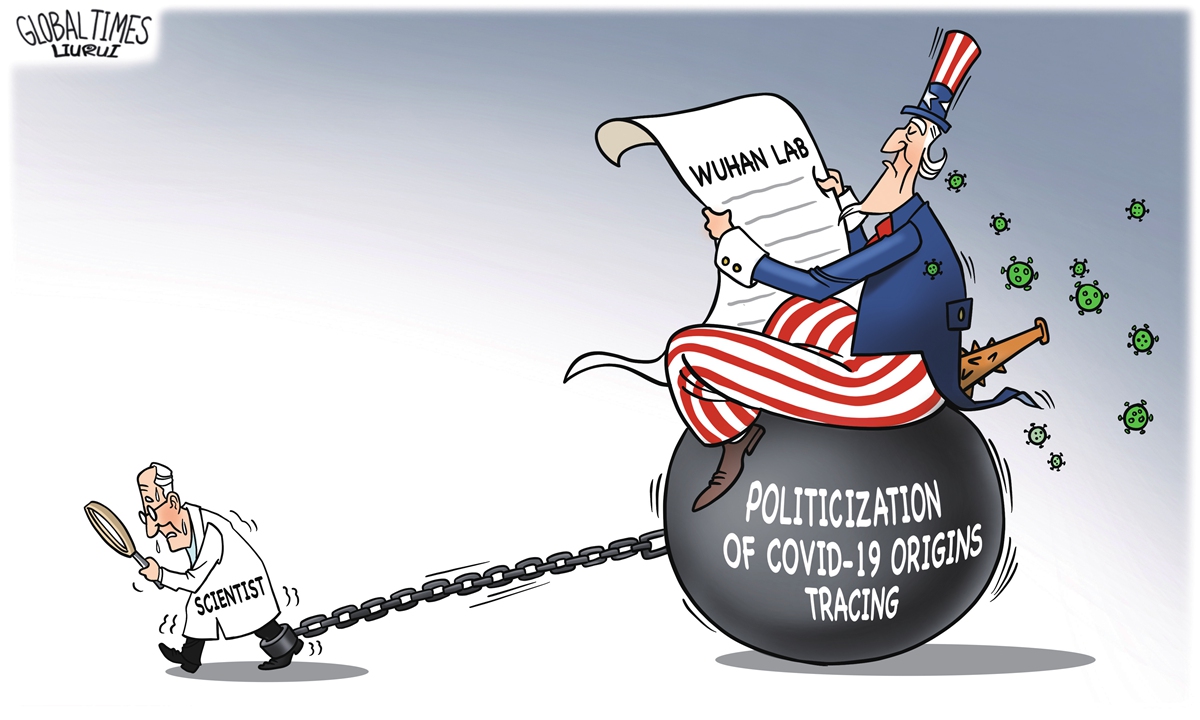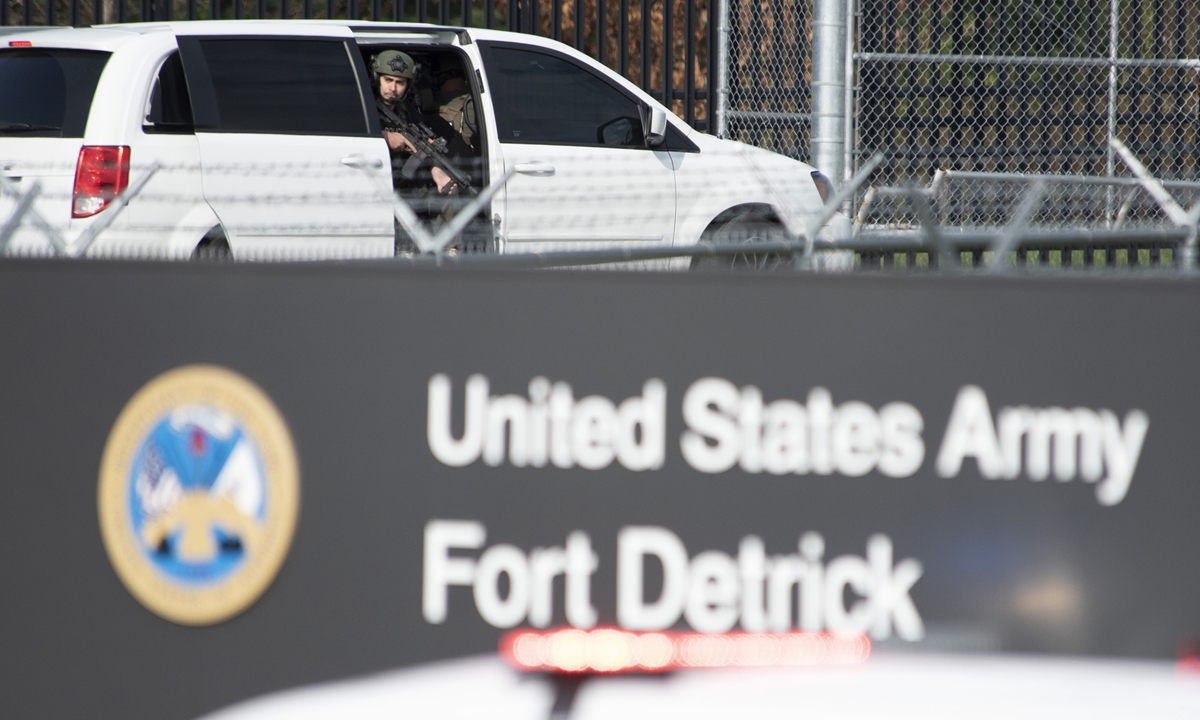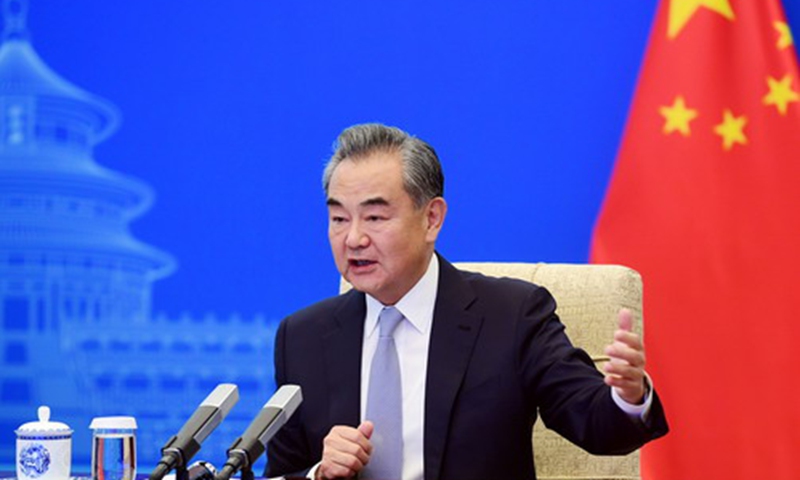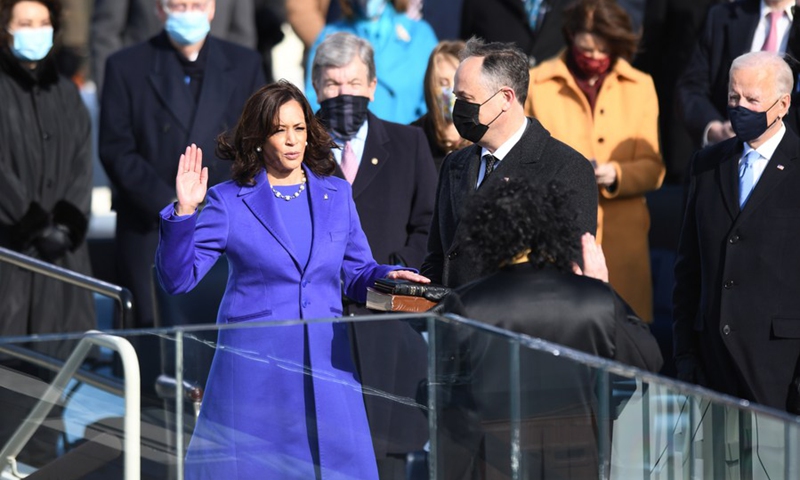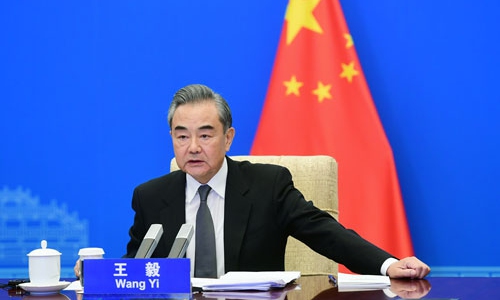Fort Detrick, UNC labs at center of virus origins controversy
 A member of the Frederick Police Department Special Response Team peers out of a minivan before the team entered Fort Detrick on April 6. Photo: VCG
A member of the Frederick Police Department Special Response Team peers out of a minivan before the team entered Fort Detrick on April 6. Photo: VCGOver 300 political parties, social societies and think tanks in over 100 countries and regions opposed politicizing virus origins tracing in a joint statement sent to the World Health Organization (WHO) Secretariat recently after global scientists have been calling for a thorough and sincere international cooperation over the origins-tracing issue in which China has set an example.
It has become increasingly clear that Washington is turning the origins studies into a political maneuver as more Chinese diplomats spoke out in denouncing the Joe Biden administration for engaging in a "terror-making campaign" on the matter. US politicians also put the WHO in an awkward position as the US government has been pressuring it on origins tracing in recent months.
On the origins-tracing work, the Chinese Foreign Ministry recently said the US should start with four things, including publishing and examining the data of its early cases, inviting WHO experts to investigate Fort Detrick and its 200-plus biolabs overseas, inviting WHO experts to investigate the University of North Carolina and release the data concerning the sickened American military athletes who attended the world military games in Wuhan. Observers and experts said the US should do more amid rising doubts and suspicions, and react to those unanswered questions.
.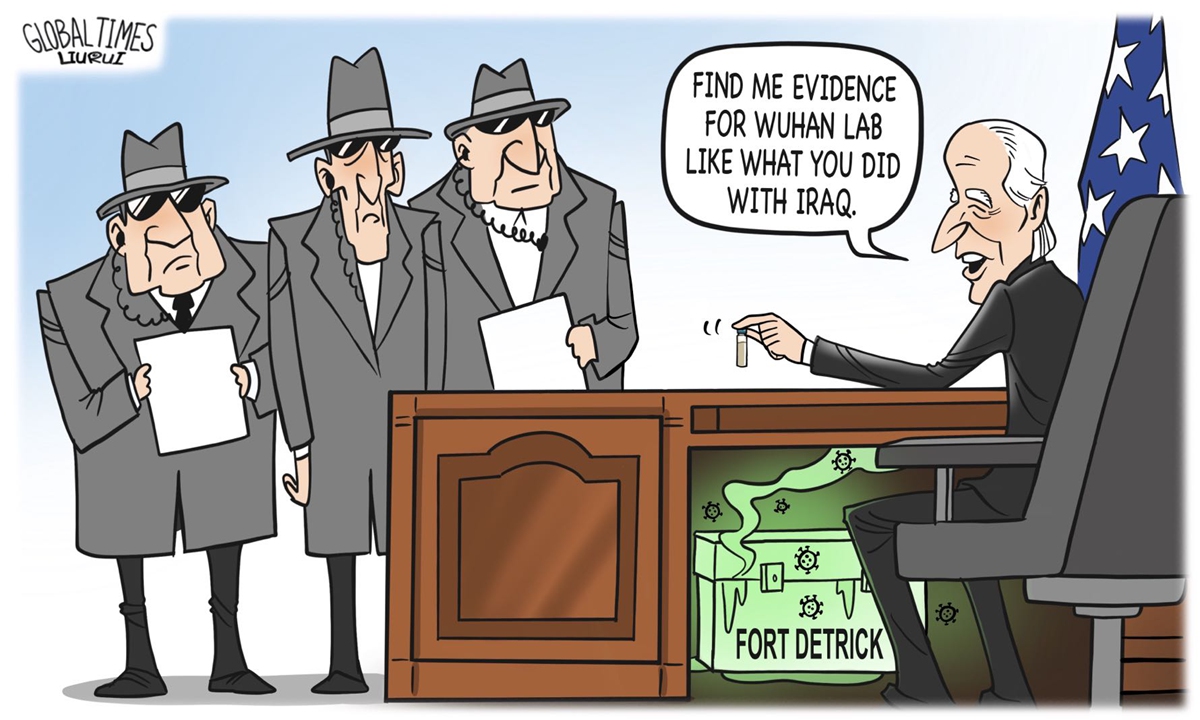 Illustration: Liu Rui/GT
Illustration: Liu Rui/GT
Clouds of suspicion
The international community clearly views the US, which has been hyping the "lab leak" theory and engaging in groundless attacks against China, as responsible for leaking the SARS-CoV-2, one insider told the Global Times.
A laboratory at the University of North Carolina (UNC) at Chapel Hill, led by the renowned US coronavirus expert Ralph Baric, is becoming, together with the infamous Fort Detrick lab, the focus of public suspicion in the search for the origins of the virus.
Baric's team is the authority when it comes to [coronavirus] research with widely recognized capability in synergizing and modifying coronaviruses, said Chinese Foreign Ministry spokesperson Zhao Lijian. He urged the US to invite WHO experts to investigate the UNC facility. "A probe into Baric's team and lab would clarify whether coronavirus research has created or will create SARS-CoV-2," Zhao said on Friday.
With a more mature environment of lab virus synthesizing and operating, as well as more virus leakage cases in history, the virus was obviously more likely leaked from the US labs if the "lab leak" claim is true, said Chinese biosecurity specialist Li (pseudonym), who works at a research institute in eastern China.
"We appeal to the WHO to put US labs, including the one located at UNC, into its Phase-II investigation," Li told the Global Times on Tuesday.
While the Chinese Foreign Ministry and Chinese scientists have called on the US to release data and medical records of US military personnel who fell ill during the world military games in Wuhan, some US media and people also raised concerns that the Pentagon did not test their soldiers attending the Wuhan games.
According to an opinion article in the Washington Post, athletes from countries including France, Germany and Italy have publicly claimed that they had contracted what they believed to be COVID-19 at the military games in Wuhan.
"In Washington, military leaders either dismissed it or weren't aware of it. Meanwhile, no one performed any antibody tests or disease tracing on thousands of athletes. No one even attempted to find out whether the games in Wuhan were, in fact, the first international pandemic super spreader event," read the opinion piece.
A Pentagon spokesperson said in an email that there was no screening because the Wuhan military games - held from October 18 to 27, 2019 - "was prior to the reported outbreak." The spokesperson cited December 31, 2019 as the critical outbreak day, the US political magazine American Prospect reported on June 30, 2020. Since that email, Pentagon officials have repeatedly declined to speak on or off the record on the subject.
In addition to suspicions on US biolabs and untested athletes, whether some of the patients of the mysterious vaping-related lung disease that swept through all of the 50 US states in 2019 also sparked more doubts, after Chinese scientists found that 16 e-cigarette or vaping use-associated lung injury (EVALI) patients were involved in viral infections, which indicates that they could have had COVID-19. Five of the cases were determined as "moderately suspicious."
"Why does the US remain silent? What's hidden there?" Chinese Foreign Ministry spokesperson Hua Chunying asked in a tweet on Wednesday, after more and more voices called for an investigation in the US, especially at its Fort Detrick lab.
Some US labs preserve samples of the viruses they uncover instead of reporting them, said Yang Zhanqiu, a virologist at Wuhan University. "Some samples are even held for decades," Yang told the Global Times.
Reject US-led politicization
On the next phase of origins study, the WHO said recently that member states agreed that the origins tracing should not be politicized and the WHO is having positive consultations with a large number of states, including China.
Mike Ryan, executive director of the WHO Health Emergencies Program, said at a press conference on Friday that the next stage origins study is building on the report of the Phase-I mission, in which many studies were proposed to go forward.
He said Chinese colleagues are implementing some of the studies raised in the report, and "we look forward to updates from colleagues from China and we expect to continue in China and a number of countries from around the world."
The Chinese health authority rejected WHO's Phase-II COVID-19 origins study in mid-July, calling it lacking respect to common sense and being arrogant to science amid rising politicized moves of the US government on the matter, as the WHO's plan was proposed when the US-led West intensified the politics-driven conspiracy about a "lab leak" theory and exerted political pressure on international scientists to give up their scientific position on the origins issue.
"We want to reassure colleagues in China that the process is and has always been driven by science," Ryan said, noting that everybody is calling for this.
There's widespread agreement among all our member states, let's not politicize the process, Ryan noted.


